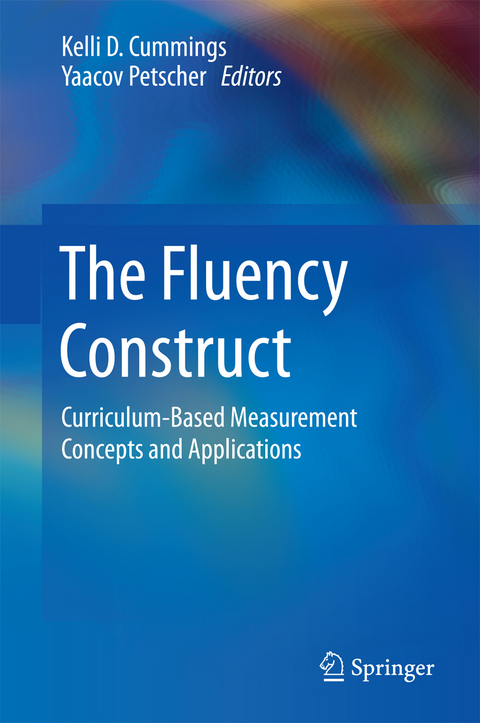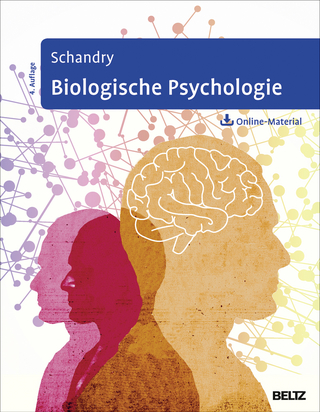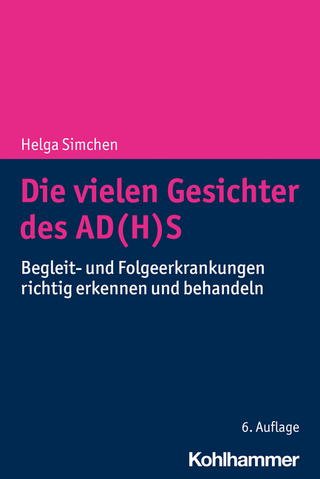
The Fluency Construct
Springer-Verlag New York Inc.
978-1-4939-2802-6 (ISBN)
Included in the coverage:
Indicators of fluent writing in beginning writers.
Fluency in language acquisition, reading, and mathematics.
Foundations of fluency-based assessmentsin behavioral and psychometric paradigms.
Using response time and accuracy data to inform the measurement of fluency.
Using individual growth curves to model reading fluency.
Latent class analysis for reading fluency research.
The Fluency Construct: Curriculum-Based Measurement Concepts and Applications is an essential resource for researchers, graduate students, and professionals in clinical child and school psychology, language and literature, applied linguistics, special education, neuropsychology, and social work.
Kelli D. Cummings, Ph.D., NCSP, is an Assistant Professor at the University of Maryland. Her research focuses on projects that link assessment and intervention technologies to improve student success. She has worked as a special education teacher, a school psychologist and a trainer of school psychologists; she brings these practical experiences to her work in the research community. Dr. Cummings has provided formal technical assistance and training on Problem-Solving, Response-to-Intervention and the use of Curriculum-Based Measurement for data-based decision making in schools throughout the U.S., Canada, and Great Britain. Her work is published regularly in school psychology and education journals. Yaacov Petscher, Ph.D., is the Director of Research at the Florida Center for Reading Research at Florida State University. His research interests are in the areas of computer adaptive assessments, the study of individual differences in reading, psychometrics and applied research methods in education. Dr. Petscher recently edited Applied Quantitative Analysis in Education and the Social Sciences and regularly publishes in education, psychology and measurement journals as well as technical reports for the National Center for Education Evaluation and Regional Assistance via the Regional Educational Laboratory – Southeast.
Preface.- Chapter 1. What is Fluency?; Gina Biancarosa and Lina Shanley.- SECTION ONE: Applied Use of Fluency Measures.- Chapter 2. Indicators of Fluent Writing in Beginning Writers; Kristen D. Ritchey, Kristen L. McMaster, Stephanie Al Otaiba, Cynthia S. Puranik, Young-Suk, Kim, David C. Parker, Miriam Ortiz.- Chapter 3. Mathematics Fluency—More than the Weekly Timed Test; Ben Clarke, Nancy Nelson, Lina Shanley.- Chapter 4. Using Curriculum-Based Measurement Fluency Data for Initial Screening Decisions; Erica S. Lembke, Abigail Carlisle, Apryl Poch.- Chapter 5. Using Oral Reading Fluency to Evaluate Response to Intervention and to Identify Students not Making Sufficient Progress; Matthew K. Burns, Benjamin Silberglitt, Theodore J. Christ, Kimberly A. Gibbons, Melissa Coolong-Chaffin.- SECTION TWO: Considerations for Test Development.- Chapter 6. Foundations of Fluency-Based Assessments in Behavioral and Psychometric Paradigms; Theodore J. Christ, Ethan R. Van Norman, Peter M. Nelson.- Chapter 7. Using Response Time and Accuracy Data to Inform the Measurement of Fluency; John Prindle, Alison M. Mitchell, Yaacov Petscher.- Chapter 8. An Introduction to the Statistical Evaluation of Fluency Measures with Signal Detection Theory; Keith Smolkowski and Kelli D. Cummings.- Chapter 9. Different Approaches to Equating Oral Reading Fluency Passages; Kristi L. Santi, Christopher Barr, Shiva Khalaf, David J. Francis.- SECTION THREE: Advanced Research Methods.- Chapter 10. Using Individual Growth Curves to Model Reading Fluency; D. Betsy McCoach and Huihui Yu.- Chapter 11. Introduction to Latent Class Analysis for Reading Fluency Research; Jessica A.R. Logan and Jill M. Pentimonti.- Chapter 12. Using Latent Change Score Analysis to Model Growth and Causality in Fluency Skills; Yaacov Petscher, Sharon Koon, Sarah Herrera.- Chapter 13. Conclusion: Oral Reading
Fluency or Reading Aloud from Text: An Analysis through a Unified View of Construct Validity; Christine A. Espin and Stanley L. Deno.
| Erscheint lt. Verlag | 12.12.2015 |
|---|---|
| Zusatzinfo | 57 Illustrations, black and white; XIV, 386 p. 57 illus. |
| Verlagsort | New York |
| Sprache | englisch |
| Maße | 155 x 235 mm |
| Themenwelt | Schulbuch / Wörterbuch ► Wörterbuch / Fremdsprachen |
| Geisteswissenschaften ► Psychologie ► Biopsychologie / Neurowissenschaften | |
| Geisteswissenschaften ► Psychologie ► Entwicklungspsychologie | |
| Geisteswissenschaften ► Psychologie ► Pädagogische Psychologie | |
| Geisteswissenschaften ► Sprach- / Literaturwissenschaft ► Sprachwissenschaft | |
| Medizin / Pharmazie ► Medizinische Fachgebiete ► Psychiatrie / Psychotherapie | |
| Sozialwissenschaften ► Pädagogik ► Schulpädagogik / Grundschule | |
| Sozialwissenschaften ► Pädagogik ► Sozialpädagogik | |
| Sozialwissenschaften ► Soziologie | |
| Schlagworte | Curriculum-based measurement • Dynamic indicators of basic early literacy skills • Fluency-based assessments • Latent Class Analysis • Measurement issues in fluency • No Child Left Behind • Oral reading fluency • Oral reading fluency passages • Response to intervention and reading • School psychology • Special education |
| ISBN-10 | 1-4939-2802-3 / 1493928023 |
| ISBN-13 | 978-1-4939-2802-6 / 9781493928026 |
| Zustand | Neuware |
| Haben Sie eine Frage zum Produkt? |
aus dem Bereich


